Finding the perfect health insurance plan for your small business can feel like an uphill battle. With various options promising different levels of coverage, affordability, and benefits, it’s easy to get overwhelmed. In my own pursuit of the right health plan for my team, I spent countless hours researching, balancing cost with comprehensive care, and ensuring compliance with legal standards.
In this guide, we’ll explore some of the best avenues available today for securing health insurance for startups and small businesses. From leveraging platforms like HealthCare.gov to considering private marketplaces and tapping into professional associations’ plans, you’ll find clear comparisons and expert advice to help make your decision easier. Let’s embark on this journey to ensure your team gets the care they deserve without breaking the bank.
The best health insurance options for startups and small businesses can vary based on factors such as location, business size, and the health of individuals seeking coverage. However, exploring private health insurance providers, considering Health Savings Accounts (HSAs) coupled with high deductible health plans, and consulting with an insurance broker experienced in this niche are reliable starting points for finding the right coverage. Thorough research and comparison of different options is crucial to ensure the best fit for your startup or small business.
Available Insurance Marketplace Options
When it comes to finding the right health insurance options for your business, several resources and platforms are designed specifically for small businesses and startups. Understanding these options can help you make an informed decision that aligns with the needs of your company and employees.
HealthCare.gov for Small Businesses
If you’re looking for a comprehensive resource to learn about health insurance products and services for your employees, HealthCare.gov is an invaluable platform. The website offers various options tailored for small businesses and startups. Additionally, it provides comparison tools that allow you to evaluate different plans based on factors such as coverage levels, premiums, and network options.
The inclusion of resources for sole proprietors and self-employed individuals makes HealthCare.gov a versatile tool for those operating on their own or as part of a small team. By leveraging the comparison tools provided by this platform, you can gain a clearer understanding of the available plans, making it easier to choose the one that best fits your company’s needs.
Private Health Insurance Marketplaces
In addition to government-run platforms like HealthCare.gov, private health insurance marketplaces offer a diverse array of plans tailored specifically for small businesses. Platforms such as eHealthInsurance and Gusto provide easy-to-navigate interfaces where you can compare premiums, coverage levels, and network options.
These private marketplaces are built with simplicity in mind, streamlining the process of exploring different plans and making informed decisions. Their user-friendly nature allows you to efficiently assess multiple options side by side, facilitating a clearer understanding of which plans may be best suited for your business and employees.
Professional Associations and Chambers of Commerce
Many professional associations and local chambers of commerce extend health plans to their members at discounted rates due to collective bargaining power. Such organizations negotiate with insurers to procure group-level benefits for their members, providing a cost-effective avenue for small businesses to access quality healthcare coverage.
By joining a professional association or local chamber of commerce that offers health plans, your business can benefit from exclusive access to tailored options that cater to the specific needs of its members. This avenue often presents an opportunity to leverage bulk purchasing power, resulting in cost-efficient coverage solutions for your business and employees.
These marketplace options have something unique to offer, so examining them carefully will allow you to make an informed choice that caters specifically to the requirements of both your company and your team.
As we navigate the intricate landscape of health insurance options, it becomes essential to evaluate the providers offering these services. Let’s now dive into the art of scrutinizing insurance providers to ensure that your company secures the best possible coverage.
Evaluating Insurance Providers
Choosing a health insurance provider is a significant decision for any small business. It’s not just about finding coverage that checks all the right boxes; it’s also about evaluating the company that stands behind those policies.
Research Reputation and Customer Service
As with any business relationship, trust and reliability are paramount. When researching potential insurance providers, consider looking for reviews and ratings on platforms like the Better Business Bureau (BBB) and Consumer Affairs. These platforms often host valuable feedback and complaints from real customers, providing insights into an insurance company’s reputation and customer service track record.
Reading through customer experiences can offer a glimpse into how responsive and supportive an insurance provider is when it comes to addressing concerns or processing claims. Positive interactions and satisfactory resolutions can be indicative of a company committed to serving its policyholders’ needs.
Provider Network
Another crucial aspect to consider is the extent of the provider’s network of doctors, specialists, and hospitals. An extensive network ensures that your employees have access to quality healthcare providers. Utilize tools like Healthgrades to verify where the provider’s network extends, ensuring that it covers medical professionals in locations accessible to your employees. After all, what good is insurance if employees can’t find or access a healthcare provider within their network?
Inquiring about specialized care or services within the provider’s network can also shed light on whether specific needs can be met without excessive out-of-pocket expenses for your employees.
Claims Process
Investigating the ease and speed of the claims process is equally crucial. After all, prompt reimbursement for medical expenses contributes significantly to employee satisfaction. Providers with a streamlined and hassle-free claims system not only enhance employee experience but also serve as reliable partners for long-term commitments.
Consider reaching out to other small business owners in your network who have experience dealing with the insurance providers you’re considering. Their firsthand experiences could provide valuable insights into each company’s dedication to customer service and responsiveness in managing claims.
Evaluating these aspects will help ensure that the insurance provider you choose offers reliable coverage with a strong support system and extensive network, ultimately benefiting both your business and your employees in the long run.
Unraveling the intricacies of health insurance further, let’s now explore the different types of health insurance plans tailored to meet diverse business needs.
Types of Health Insurance Plans
Choosing the right health insurance plan for your small business can be a daunting task, but amid the options available, Health Maintenance Organization (HMO), Preferred Provider Organization (PPO), and Health Savings Account (HSA)-qualified Plans stand out.
Health Maintenance Organization (HMO)
Health Maintenance Organizations typically offer lower premiums compared to other plans. They require you to select a Primary Care Physician (PCP) who will be responsible for coordinating your care and providing referrals to specialists when necessary. While HMOs can be cost-effective, they are less flexible, as you’ll need a referral from your PCP to see a specialist.
HMOs tend to work well for individuals or businesses that prefer predictability in their healthcare costs. However, they may lead to frustration and delays in care due to the referral requirements. For example, if an employee needs to see a specialist, such as a cardiologist or orthopedic surgeon, they will first need approval from their PCP, which could prolong the time it takes to receive specialized treatment.
Preferred Provider Organization (PPO)
Preferred Provider Organizations offer more flexibility in terms of choosing healthcare providers. Unlike HMOs, PPOs do not require referrals to see specialists. However, this added flexibility comes with higher premiums compared to HMOs.
The appeal of PPOs lies in the freedom they provide employees; they can seek care from any provider within or outside the network without needing a referral. This can be especially advantageous for businesses with employees who value greater autonomy in managing their healthcare needs and preferences.
Health Savings Account (HSA)-Qualified Plans
HSAs paired with High-Deductible Health Plans (HDHP) allow individuals to set aside pre-tax funds for qualified medical expenses. These plans aim to strike a balance between cost and coverage, offering potential savings on premiums alongside a tax-advantaged way to save for healthcare expenses.
One advantage of HSA-qualified plans is that employees can use these funds to pay for current medical expenses or save for future ones. As a small business owner, offering HSA-qualified plans can provide your employees with an additional financial tool while still providing essential insurance coverage.
Consider Jasmine, who works at a startup with an HSA-qualified plan. She contributes part of her salary into her HSA account every month. These contributions are tax-deductible and grow tax-free until she needs them for qualified medical expenses. The ability to accumulate these funds over time presents a valuable resource for Jasmine and offers her peace of mind in managing healthcare expenses effectively.
By understanding the nuances of each health insurance plan type, you can tailor your selection to meet not only the specific healthcare needs of your employees but also align with your small business’s budget and long-term growth considerations.
Understanding these different health insurance plans provides key insights into how they impact cost, coverage flexibility, and employee satisfaction – critical factors when making decisions about comprehensive healthcare coverage for your small business.
Balancing Cost and Coverage
When seeking the right health insurance plan for your small business, it’s crucial to balance costs and coverage. You want to ensure you’re paying a premium you can afford while still providing the necessary medical aid for your employees. High-deductible plans generally come with lower monthly premiums but have higher out-of-pocket costs—ideal if your employees are generally young and healthy, needing infrequent doctor visits and capable of managing higher deductibles.
Conversely, low-deductible plans entail higher monthly premiums but encompass more immediate medical needs—a better fit for businesses whose staff may have regular medical needs or might find it challenging to cover large amounts all at once.
For instance, consider a small startup with mostly young employees who seldom require a doctor’s visit. A high-deductible plan with its lower monthly premiums could be financially sound. On the contrary, a more established small business with a mix of ages and family situations might opt for a low-deductible plan providing better coverage for their diverse healthcare needs.
It’s important to weigh these factors and ponder about what makes sense for your specific group of employees.
Short-term vs. Long-term Savings
It’s tempting to simply focus on the monthly premium cost, but it’s equally vital to consider the long-term expenses involved in utilizing healthcare services.
For example, enrolling in a plan with lower premiums might save money in the short term, but if it encompasses high deductibles and copayments that your employees can’t afford when they need medical attention, it might end up costing more in the long run. It’s akin to postponing fixing a minor roof leak—it might save you some money now, but it can evolve into a substantial problem later.
While it’s important to keep an eye on your budget now, don’t forget about potential future costs. Some plans may offer sustained value over time by providing manageable copayments and deductibles with slightly higher monthly premiums.
Understanding this balance between short-term affordability and long-term healthcare costs is paramount when selecting an insurance plan that benefits both your business and your employees.
As we navigate the complex landscape of healthcare options for small businesses, our next step is exploring the critical aspect of budgeting for health insurance.
Budgeting for Health Insurance
Budgeting for health insurance is crucial for any startup or small business. It’s not just about financial stability but also about supporting the well-being of your employees. Let’s break down the key considerations when budgeting for health insurance coverage.
Initial Cost Calculation
When budgeting for health insurance, start with a clear understanding of your business’s financial situation. Consider all relevant costs, including premiums, deductibles, co-pays, and out-of-pocket maximums.
Premiums are the fixed amount you pay monthly to your insurer. Deductibles are the amount you owe for covered healthcare services before your insurance plan starts to pay, while co-pays are fixed amounts paid by employees at the time of receiving services. Out-of-pocket maximums cap the total amount an employee has to pay towards medical expenses in a given year.
Carefully evaluate these costs based on your business’s financial capabilities and the level of coverage you aim to provide. A plan with higher premiums might offer lower deductibles and co-pays, which could be beneficial if your employees expect frequent doctor visits or prescriptions. On the other hand, a plan with lower premiums may have higher out-of-pocket costs.
Employee Contributions
After calculating the overall cost of providing health insurance, determine the portion of the premium that will be covered by employees. Many companies opt to split the premium cost with their employees to make health benefits more affordable for both parties.
This can be set up in various ways – some employers cover a larger share of the premium costs while others opt for a 50/50 split. It’s important to consider what percentage is manageable for your employees without significantly impacting their take-home pay.
Tax Benefits
Taking advantage of tax credits and deductions available for providing employee health insurance can significantly reduce the overall expense. This is an important aspect that deserves careful consideration when budgeting for health insurance.
For eligible small businesses, offering health insurance coverage can lead to tax benefits, such as obtaining tax credits through the Small Business Health Care Tax Credit. This credit can cover up to 50% of premiums paid by small business employers on behalf of their employees. Moreover, contributions toward employee health plans are often tax-deductible expenses.
Given the complexity of tax laws and regulations pertaining to health insurance, it’s crucial to consult with a tax professional or accountant who can provide guidance specific to your business’s situation.
Budgeting for health insurance demands careful attention and strategic planning, encompassing everything from understanding initial costs to leveraging tax benefits. By considering all these factors, businesses can effectively manage their healthcare expenditures while providing valuable coverage for their employees.
Payment Methods and Policies
When it comes to paying for your company’s health insurance, there are a few things to consider. One important aspect is the payment frequency – whether you should pay monthly or annually. Each payment method has its own set of advantages, so let’s take a closer look.
Monthly vs. Annual Payments
Paying for insurance on an annual basis can come with certain perks. Some insurance providers offer discounts to businesses that choose to pay their premiums in one lump sum at the beginning of the year. These discounts can lead to substantial cost savings in the long run. However, this may require a larger upfront investment, which could impact your cash flow.
On the other hand, monthly payments can help with cash flow management as they spread out the cost over the year. This approach provides more flexibility, allowing you to allocate funds for other business expenses while ensuring consistent coverage for your employees. It’s all about finding a balance between saving money and maintaining financial stability for your business.
Automatic Payments
Setting up automatic payments for your health insurance premiums is a smart move for small businesses. By doing so, you can avoid potential lapses in coverage due to missed payments, ensuring uninterrupted protection for your employees. The last thing you want is for an oversight in payment to result in gaps in coverage, leaving your employees vulnerable.
Think of it like this: Just as you wouldn’t want someone to miss a vital step in keeping a project on track, ensuring consistent payment helps keep your insurance plan solid and dependable. It’s all about establishing a routine that ensures the well-being of your team.
As we’ve explored different approaches to making insurance payments work for your small business, it’s clear that each method has its own benefits and considerations. Making informed decisions based on your business’s specific needs will help ensure a smooth and effective health insurance payment process.
Renewable Policy Options
As a small business owner, understanding the terms and conditions for renewing health insurance policies is vital for the stability and predictability of future costs. When examining these terms, assessing the changes in premiums or coverage must be done carefully to determine the impact on financial planning.
The ability to accurately forecast and plan for future expenses within a small business is absolutely pivotal. Knowing how potential policy renewal changes may affect your bottom line is instrumental in maintaining financial stability. By examining the renewal terms closely, you can avoid unpleasant surprises down the road, giving you peace of mind while making informed decisions that align with your budgetary requirements.
Consider this scenario: You’ve successfully managed to budget for your health insurance costs based on the current premium rates over the last year. However, if there’s an unexpected increase in premiums upon renewal, it could significantly disrupt your financial plans. Being aware of potential changes ahead of time gives you the opportunity to explore other insurers or adjust your budget accordingly.
Now let’s consider the choice between long-term contracts and yearly renewals—a decision that can greatly impact the stability and flexibility of your coverage.
Long-term Contracts vs. Yearly Renewals
Some insurers offer multi-year contracts that lock in rates for an extended period, providing a sense of stability as well as predictable costs. This type of arrangement may appeal to small businesses seeking financial security and continuity in their healthcare coverage.
On the other hand, yearly renewals offer more flexibility, allowing you to reassess and potentially switch providers if your business needs change. This provides the freedom to adapt to any shifts in your business requirements or fluctuations in the insurance landscape.
Choosing between a long-term contract and yearly renewals involves carefully weighing the benefits of stability against the advantages of flexibility. While long-term contracts can offer rate certainty, they can also limit your ability to make changes based on new circumstances or more competitive offerings. On the contrary, yearly renewals provide greater agility but may lead to fluctuations in premiums, potentially impacting your budget planning.
Understanding these nuances is crucial for ensuring that your health insurance coverage remains sustainable and adaptable to the evolving needs of your small business. By comprehensively evaluating renewable policy options, you can make informed decisions that align with both your immediate requirements and future aspirations.
In this fast-paced landscape of business operation, adaptability and foresight are key in securing sustainable health insurance plans for small businesses. It is essential to navigate through these choices with meticulous attention to detail and a clear understanding of their long-term implications.
What are the specific health insurance options tailored for startups?
Specific health insurance options tailored for startups include association health plans (AHPs), small business health options programs (SHOP), and individual coverage health reimbursement arrangements (ICHRAs). AHPs allow small businesses to band together to obtain coverage, providing cost savings and flexibility. SHOP offers a variety of plans and gives businesses the opportunity to compare prices easily. ICHRAs allow businesses to reimburse employees for individual health insurance premiums. Statistics show that these options can help reduce healthcare costs for startups while providing coverage for employees, making them appealing choices for entrepreneurs.
How do health insurance costs vary for startups and small businesses compared to larger corporations?
Health insurance costs tend to be higher for startups and small businesses compared to larger corporations. This is mainly due to the lack of bargaining power and risk pooling capabilities that large corporations possess. Startups and small businesses often have smaller employee pools, which leads to higher per-employee administrative costs for insurance providers. Additionally, the risk profile of smaller companies may be perceived as higher, leading to increased underwriting costs. According to a study by the Kaiser Family Foundation in 2023, small firms paid on average 8% more in premiums than large employers.
Are there any government programs or subsidies available for small businesses to provide health insurance coverage?
Yes, there are government programs and subsidies available for small businesses to provide health insurance coverage. The Small Business Health Options Program (SHOP) is a government program that helps eligible employers offer health and dental insurance to their employees. Additionally, the Affordable Care Act provides tax credits to small businesses with fewer than 25 full-time equivalent employees and average annual wages under a certain threshold, making it more affordable for them to offer health insurance. According to a study by the U.S. Government Accountability Office, around 36% of small firms offered health insurance in 2020 with the help of these government programs and subsidies.
What factors should startups and small businesses consider when choosing a health insurance plan?
Startups and small businesses should consider factors such as cost, coverage options, network of healthcare providers, and employee needs when choosing a health insurance plan. Cost is a major consideration for businesses, as they need to balance the affordability of premiums with the level of coverage provided. It is also important to assess the coverage options available, including services like preventive care, prescription drugs, and mental health treatment. Additionally, businesses should evaluate the network of healthcare providers associated with the plan to ensure employees have access to quality care. Finally, understanding the specific health needs of employees can help tailor the plan to meet their requirements effectively. According to a recent survey by eHealth, 34% of small businesses prioritize cost as the most important factor when selecting a health insurance plan for their employees.
Are there any limitations or restrictions on the types of health insurance plans that startups and small businesses can offer their employees?
Yes, there are some limitations and restrictions on the types of health insurance plans that startups and small businesses can offer their employees. One limitation is the size of the company, as certain regulations may apply differently depending on the number of employees. Another limitation can be the cost of the plans, as startups and small businesses with limited budgets may struggle to provide extensive coverage options. Additionally, some states may have specific requirements for minimum coverage levels or mandates for certain benefits. According to a survey by the Kaiser Family Foundation in 2022, only 56% of small businesses with less than 50 employees offered health insurance to their workers, indicating the challenges faced in providing coverage.




